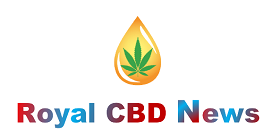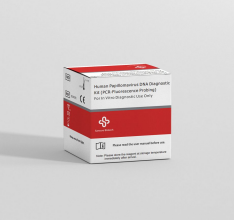Consumed Contaminated Water By Mistake? 4 Steps You Should Take

It’s difficult to imagine a scenario where you take a refreshing sip from your glass, unaware that lurking within is something you never expected: contaminated water. The thought of such a scenario is frightening but entirely possible.
Whether due to an industrial accident, infrastructure issues, or natural disasters, consuming contaminated water can have serious health consequences. But fear not!
In this blog, we will walk you through four steps that every individual must take if they find themselves in such a situation. From immediate actions to legal considerations, we’ve got you covered.
Immediate Action: Purge and Hydrate
You’ve just discovered that the water you consumed was contaminated, and panic sets in. Take a moment to relax, as the initial action you need to undertake is to expel any remaining contaminated substances from your system and replenish your body with fluids.
By purging, you can quickly eliminate any remaining contaminated water from your system. Find a safe location such as a restroom, where you can expel the water. Remember to maintain good hygiene practices while doing so.
After purging, you need to replenish your body with clean and safe fluids. Ensure to consume ample amounts of purified or bottled water to restore hydration levels in your body. Sip small amounts slowly to avoid overwhelming your stomach. If you have access to oral rehydration solutions or electrolyte drinks, they can help restore essential minerals and fluids lost during the purge.
In today’s context, where contaminants are often present in tap water, it is crucial to act swiftly and take necessary measures. Did you know that the Environmental Working Group has reported a concerning increase in the number of communities in the United States affected by PFAS, a group of highly toxic fluorinated compounds?
As of June 2022, an alarming 2,858 locations across all 50 states and two territories have been confirmed to be contaminated. Given the widespread presence of PFAS, you must take immediate action if you suspect that you’ve consumed contaminated water.
Seek Medical Attention for Assessment and Treatment
Your health should always be your top priority, especially after consuming contaminated water. You must seek immediate medical attention for a professional assessment. By consulting a healthcare provider, you can receive personalized advice and ensure any potential health risks are addressed promptly.
When you visit a healthcare provider, be sure to provide them with detailed information about the incident, including the source of the contaminated water and the symptoms you may be experiencing. They will conduct a thorough assessment, which may involve physical examinations, lab tests, or other diagnostic procedures to determine the extent of your exposure and any potential health consequences.
Water contamination can result in chronic conditions such as gastrointestinal illness, neurological disorders, etc. It makes vulnerable groups like children and the elderly more prone to become sick from contamination. Failing to seek adequate medical care can exacerbate the situation. The findings are extracted from the U.S. Department of Health & Human Services, highlighting the importance of seeking medical attention after consuming contaminated water.
Know Your Legal Rights: Consult an Attorney for Possible Recourse
In the unfortunate event that you have consumed contaminated water, you should be aware of your legal rights and potential recourse. Seeking advice from a skilled lawyer can offer valuable support and enable you to comprehend the legal options at your disposal to pursue potential compensation for any resulting damages.
Whether it’s due to negligence, environmental pollution, or other factors, a skilled attorney can evaluate your case, gather evidence, and advise you on the best course of action.
A notable case that highlights the importance of seeking legal recourse after consuming contaminated water is the Camp Lejeune crisis. For years, service members and their families were unknowingly exposed to harmful chemicals in their drinking water. According to TorHoerman Law, the incident caused chronic health conditions including cancer, birth defects, miscarriage, Parkinson’s disease, etc.
Fortunately, many impacted individuals have chosen to pursue legal action through the filing of a Camp Lejeune water contamination lawsuit. This course of action allows them to seek compensation for their damages, lost wages, medical expenses, etc. If you know someone who has been affected by this incident, encourage them to initiate the lawsuit promptly to ensure they receive the rightful benefits they deserve.
Report the Incident and Contaminant Source to Authorities
After consuming contaminated water, you should promptly report the incident and identify the source of the contamination to the relevant authorities. By doing so, you play a vital role in protecting both your own health and the well-being of others. By reporting the incident, you enable authorities to investigate, assess the extent of the contamination, and take necessary measures to address the issue.
Urban residents, in particular, should be vigilant when it comes to contaminated water due to the higher likelihood of pollution and infrastructure challenges. Factors like aging pipes, industrial activities, and population density increase the risk of contamination. If you reside in an urban area, it becomes even more critical for you to report the incident to the authorities.
Did you know that according to scientists at the U.S. Geological Survey, the likelihood of PFAS, a group of harmful contaminants, not being detected in tap water is estimated to be 75% in rural areas and 25% in urban areas? This alarming statistic highlights the increased vulnerability of urban residents to potential water contamination.
Thus, if you reside in an urban area and suspect that you have consumed contaminated water, there is an urgent need to report the incident to the official authorities.
Summing Up
The importance of taking immediate action after consuming contaminated water cannot be overstated.
By following the four steps outlined in this guide i.e. purging and hydrating, seeking medical attention, reporting the incident to authorities, and knowing your legal rights, you can safeguard your health and contribute to the prevention of further harm.
You should also note that being informed, proactive, and responsible in the face of water contamination is key to ensuring your well-being and the well-being of your community. By doing so, you can minimize the potential risks, seek appropriate treatment, hold responsible parties accountable, and help create a safer and healthier environment for all.





